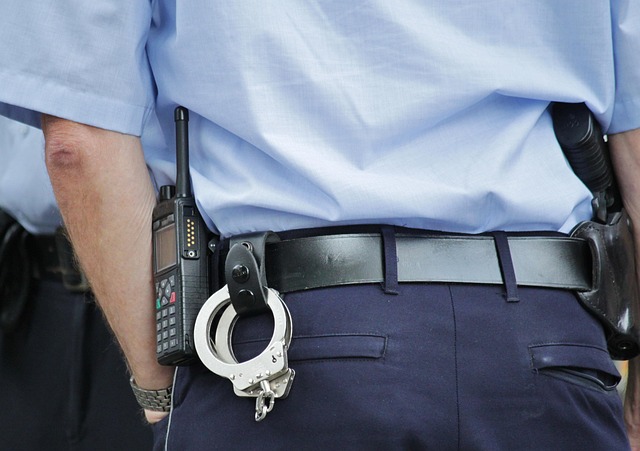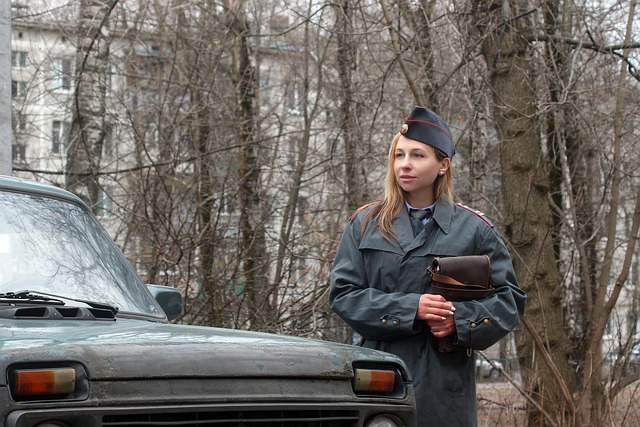State Variations in Laws: Unmasking Financial Fraud’s Complexities

Criminal Procedure Laws by State Variations create complex fraud investigation landscape, affecting…….
In the intricate web of criminal justice systems worldwide, a fascinating aspect emerges when examining the diverse landscape of state-level legal procedures. This article delves into the nuanced world of “Criminal Procedure Laws by State Variations,” exploring how different jurisdictions shape their approach to criminal investigations, prosecution, and adjudication. By understanding these variations, we gain valuable insights into the complexities of global legal systems and their implications for public safety, justice, and due process. Through this exploration, readers will uncover the intricate balance between local autonomy and universal human rights principles that underpin criminal procedure.
Definition: “Criminal Procedure Laws by State Variations” refers to the set of legal norms and regulations that govern the processes involved in addressing criminal offenses within a specific state or jurisdiction. These laws dictate how law enforcement agencies conduct investigations, how prosecutors present cases, and the rights guaranteed to accused individuals throughout the legal process. The core components include rules related to arrest, search warrants, discovery, pretrial detention, grand juries, trials, appeals, and sentencing.
Historical Context: The evolution of criminal procedure laws can be traced back to ancient civilizations where basic principles of justice emerged from customs and traditions. Over centuries, these evolved into formal legal codes with the development of written law in various cultures. In modern times, the Universal Declaration of Human Rights (1948) and subsequent international treaties have played a pivotal role in establishing minimum standards for criminal procedure, ensuring fairness and protection of individual rights across jurisdictions.
Significance: State-level variations in criminal procedure laws are shaped by unique historical, cultural, and social factors, leading to diverse legal philosophies and approaches. These variations impact:
The influence of “Criminal Procedure Laws by State Variations” extends far beyond national borders, reflecting a complex interplay of cultural, political, and economic factors:
The economic landscape plays a pivotal role in shaping “Criminal Procedure Laws by State Variations” in several ways:
Technology has revolutionized criminal procedure, presenting both opportunities and challenges:
Key policies and regulations governing “Criminal Procedure Laws by State Variations” include:
| Policy Area | Regulatory Frameworks | Impact |
|---|---|---|
| Arrest and Detention | Warrant requirements, probable cause standards, and rules for pretrial detention vary widely. | Influences the balance between public safety and individual liberties, affecting arrest rates and incarceration levels. |
| Grand Juries and Indictments | The use of grand juries for charging decisions differs across states, as do procedures for indictment and superior court jurisdiction. | Impacts the accuracy and fairness of criminal charges, with potential implications for case outcomes. |
| Discovery and Disclosure | Rules regarding the exchange of evidence between prosecution and defense differ, affecting trial preparation and strategies. | Ensures a level playing field for both parties but can be complex in multi-jurisdictional cases. |
| Constitutional Rights | Protections for due process, right to counsel, and freedom from self-incrimination are guaranteed by state constitutions but may be interpreted differently. | Safeguards individual rights during criminal proceedings, with variations impacting trust in the justice system. |
| Sentencing Guidelines | Many states have adopted mandatory minimum sentences or sentencing grids, while others use discretion based on judicial interpretation. | Influences incarceration rates and recidivism, with debates ongoing regarding effectiveness and fairness. |
Despite its critical role, “Criminal Procedure Laws by State Variations” faces several challenges:
Actionable Solutions:
The UK’s system of Magistrates’ Courts is a successful example of efficient, decentralized criminal justice administration. Comprised of part-time, locally-elected magistrates, this system handles a vast majority of criminal cases, focusing on summary (less serious) offenses. The key strengths include:
Lessons Learned: The UK model demonstrates the benefits of decentralized justice systems, but it also highlights the importance of thorough training and support for magistrates to ensure fairness and consistency in decision-making.
Norway, Sweden, and Denmark have gained international recognition for their restorative justice models, which prioritize victim participation, offender accountability, and community reintegration. Key features include:
Impact and Implications: The success of these models lies in their holistic approach, addressing not just punishment but also victim needs and offender rehabilitation. This shift towards restorative practices challenges traditional retributive criminal justice systems and offers valuable insights for states seeking more effective alternatives to incarceration.
The future of “Criminal Procedure Laws by State Variations” is shaped by evolving social, technological, and political landscapes:
“Criminal Procedure Laws by State Variations” is a dynamic and multifaceted aspect of modern criminal justice systems, reflecting the intricate interplay between local autonomy and universal human rights principles. Understanding these variations is essential for policymakers, legal scholars, and practitioners seeking to navigate complex legal landscapes and ensure fairness and justice.
By studying state-level approaches, we can identify best practices, learn from successful applications, and address challenges related to access to justice, procedural fairness, and public safety. As the world becomes increasingly interconnected, the evolution of criminal procedure laws will continue to be shaped by global trends, technological advancements, and a relentless pursuit of justice in all its forms.
Q: How do state variations impact the ability to prosecute transnational crimes?
A: State variations can pose challenges when prosecuting transnational crimes as each jurisdiction may have distinct laws and procedures for evidence collection, jurisdiction, and mutual legal assistance. However, model laws and international treaties provide a framework for cooperation, facilitating cross-border investigations and prosecutions.
Q: What role does public opinion play in shaping criminal procedure laws?
A: Public opinion is a powerful influencer of policy-making. Support or opposition to specific procedures, such as harsher sentencing or expanded surveillance powers, can drive legislative changes. Policymakers must balance public sentiment with the need for fair and effective criminal justice systems.
Q: How do technological advancements affect witness testimony in court?
A: Technology offers both opportunities and challenges. Video conferencing enables remote witness testimony, while advanced forensic tools enhance or challenge traditional forms of evidence. It is crucial to establish guidelines ensuring the admissibility and reliability of digital evidence to maintain fairness in trials.
Q: Can you explain the concept of “restorative justice” and its benefits?
A: Restorative justice focuses on the needs of victims, offenders, and communities affected by crime. It emphasizes dialogue, accountability, and reparation rather than punishment. Benefits include improved victim healing, reduced recidivism rates, and enhanced community cohesion, as demonstrated in Scandinavian countries.

Criminal Procedure Laws by State Variations create complex fraud investigation landscape, affecting…….

Corporate crime investigations require deep understanding and adaptation of state-specific Criminal…….

Understanding and navigating state variations in Criminal Procedure Laws is critical for legal profe…….

RF Finance Law Firms face challenges navigating state-specific Criminal Procedure Laws by State Vari…….

Effective financial fraud detection demands a deep understanding of Criminal Procedure Laws by State…….

RF Regulatory Agency investigations are vital for maintaining wireless standards, navigating state-b…….

Understanding state-specific Criminal Procedure Laws is crucial for financial crime investigations,…….

Whistleblower Protection Laws (WPL) vary significantly across U.S. states, impacting how whistleblow…….

Environmental Crime Trials, a specialized legal field, require attorneys to balance knowledge of env…….

Understanding Criminal Procedure Laws by State Variations is crucial for effective litigation in the…….